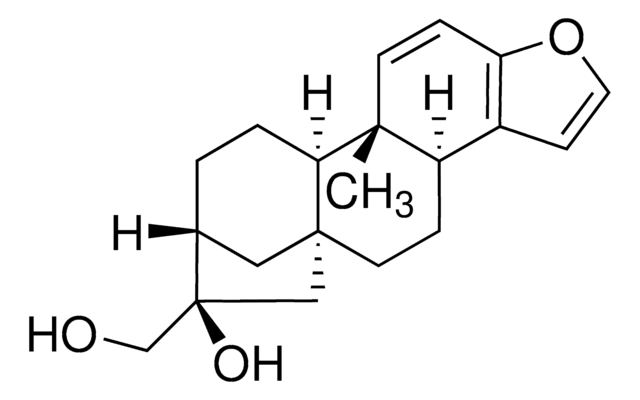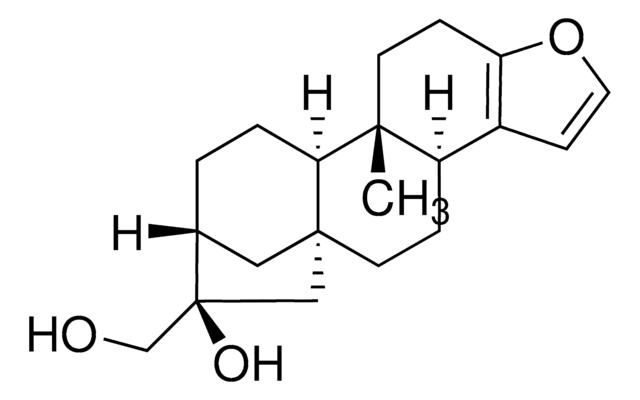C1305
Cafestol acetate
≥98%
About This Item
Productos recomendados
Quality Level
assay
≥98%
form
powder
technique(s)
HPLC: suitable
color
white to off-white
storage temp.
2-8°C
SMILES string
CC(=O)OCC1(O)CC23CCC4c5ccoc5CCC4(C)C2CCC1C3
InChI
1S/C22H30O4/c1-14(23)26-13-22(24)12-21-9-5-17-16-7-10-25-18(16)6-8-20(17,2)19(21)4-3-15(22)11-21/h7,10,15,17,19,24H,3-6,8-9,11-13H2,1-2H3
InChI key
PTGGVIKFNQSFBY-UHFFFAOYSA-N
Application
Biochem/physiol Actions
Other Notes
Storage Class
11 - Combustible Solids
wgk_germany
WGK 3
flash_point_f
Not applicable
flash_point_c
Not applicable
ppe
Eyeshields, Gloves, type N95 (US)
Certificados de análisis (COA)
Busque Certificados de análisis (COA) introduciendo el número de lote del producto. Los números de lote se encuentran en la etiqueta del producto después de las palabras «Lot» o «Batch»
¿Ya tiene este producto?
Encuentre la documentación para los productos que ha comprado recientemente en la Biblioteca de documentos.
Nuestro equipo de científicos tiene experiencia en todas las áreas de investigación: Ciencias de la vida, Ciencia de los materiales, Síntesis química, Cromatografía, Analítica y muchas otras.
Póngase en contacto con el Servicio técnico




